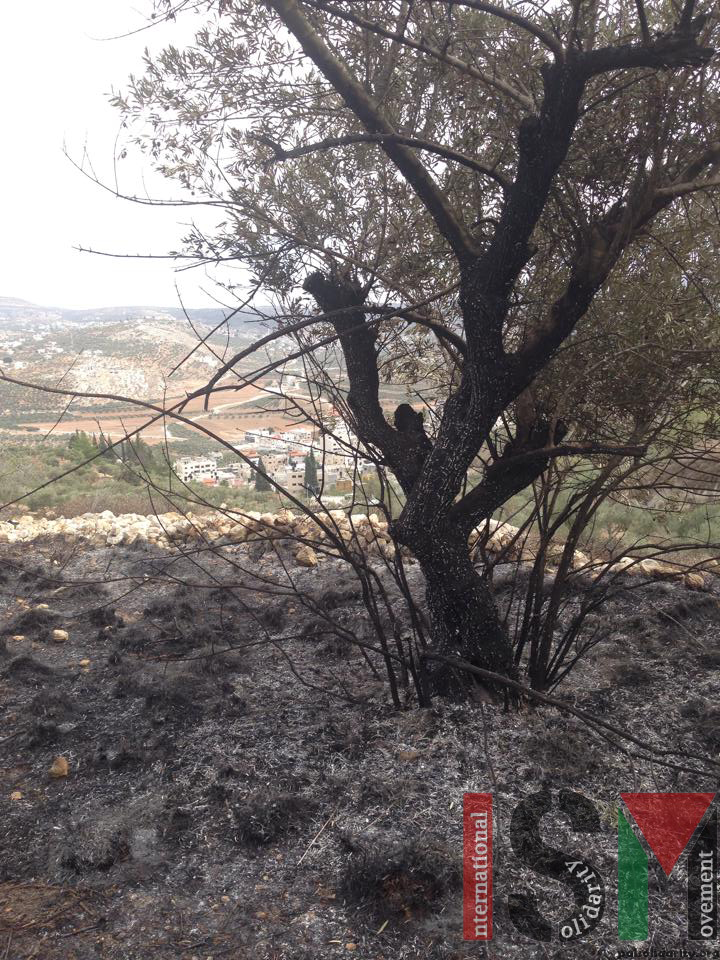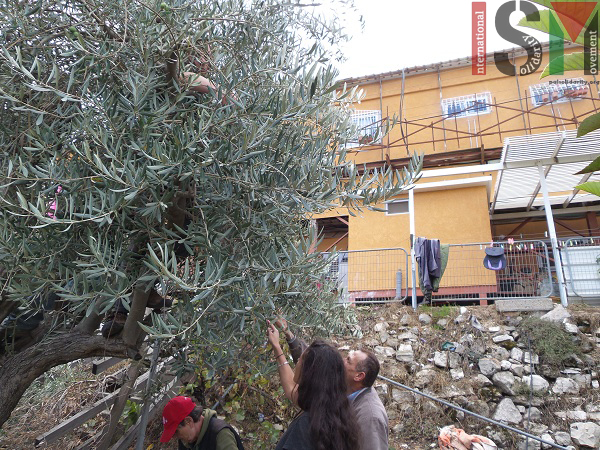Tag: Olive Harvest 2014
-
Zionist settlers burn Palestinian olive grove
22nd October 2014 | International Solidarity Movement, Nablus team | Huwwara, Occupied Palestine This morning at approximately 09:30, settlers from the illegal settlement of Yizhar set fire to a Palestinian olive field above Huwwara village, just outside of Nablus. The settlers set the land on fire from the top of the hill. People from the village…
-
Palestinian man successfully harvests olives for the first time in 14 years
20th October 2014 | International Solidarity Movement, Khalil team | Tel Rumeida, Occupied Palestine Today in al-Khalil (Hebron) Hashem Azzeh, a Palestinian man living in the Tel Rumeida neighborhood was able to successfully harvest his olives, on a certain part of his land, for the first time in 14 years. Hashem and his family live in…
-
Stories from Burin during the olive harvest
15th October 2014 | International Solidarity Movement, Nablus team | Burin, Occupied Palestine On Monday, three Palestinians were picking olives in Burin. Their field was in a very exposed area, right between an illegal settlement, a military checkpoint, and a security detention centre. A group of ISM volunteers accompanied them as protective presence. These are some of their stories: Ali,…



